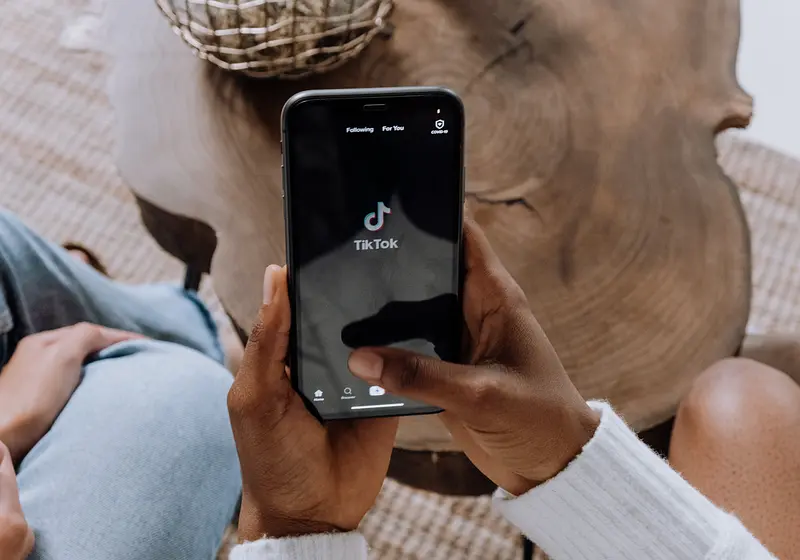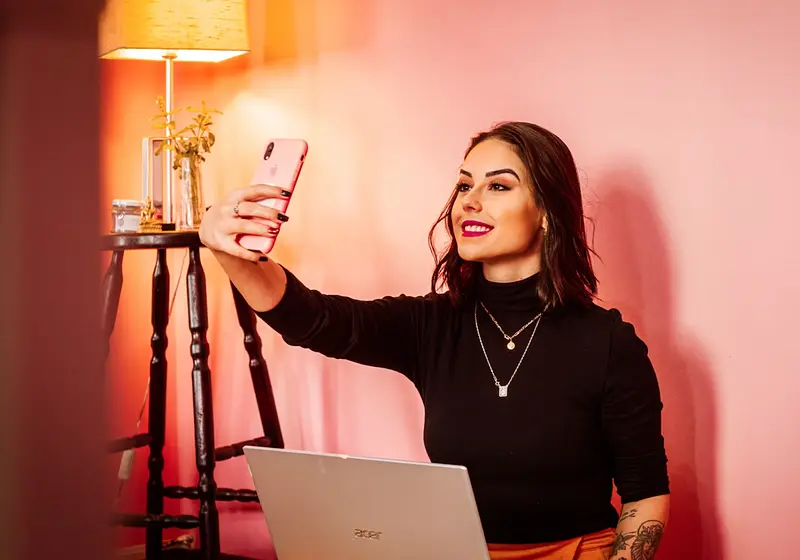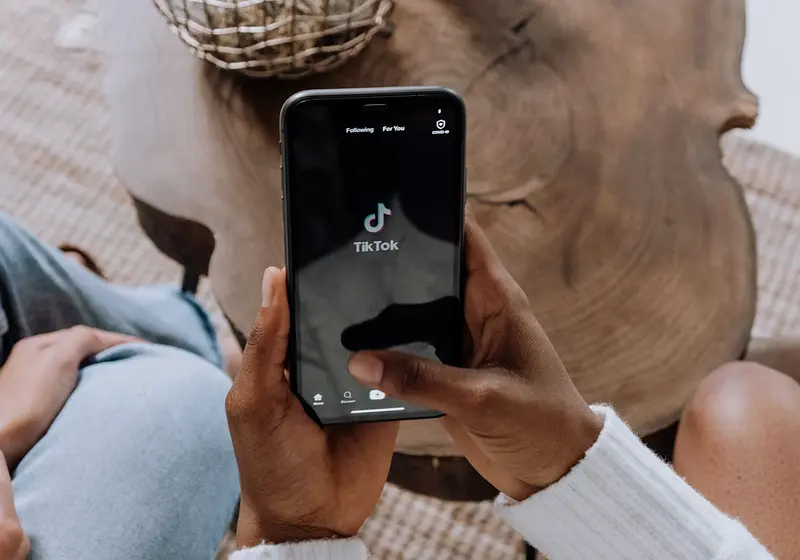A 2023 study found that teenagers spend on average 1 hour and 47 minutes on TikTok every day. This adds up to almost 600 hours a year—which is the equivalent of 25 days.
This means that young people are spending almost a month on TikTok every year. But perhaps this isn't what's most shocking; perhaps what's most shocking is that it's easy to understand why.
Over the last few years, TikTok has ballooned to the point where it exists as a virtual universe in its own right. The app is brimming with millions of users who are creating content on every topic you could think of—and even some that you can't. There are TikTok accounts dedicated to train spotting, scissors collecting, politician edits. No matter how niche the interest, you'll find TikToks to suit you.
The app's rapid growth can be credited in part to the Covid-19 pandemic. Multiple lockdowns meant that people were stuck in their homes for months on end. This inability to meet friends and family in person meant that many turned to social media apps like TikTok for connection. A virtual existence formed a substitute for a physical existence.
However, the Covid-19 lockdowns have concluded, and TikTok remains as popular as ever.

Image Credit: Warren from Unsplash
Let us slide into your dms 🥰
Get notified of top trending articles like this one every week! (we won't spam you)Why is This a Problem?
As TikTok usage grows amongst teenagers, so does the fear that they are losing touch with reality. Recent years have seen the birth of phrases relating to this disconnection, such as ‘touch grass’ (meaning to get off your device and go outside) and ‘chronically online’ (in reference to someone who spends excessive time on the internet).
The recent tube girl trend is an example of how teenagers are becoming disillusioned from reality. In 2023, TikTok user Sabrina Bahsoon made a series of videos dancing on the tube. The most popular video attained 2.5 million likes.
Her videos sparked a trend where people filmed themselves dancing on the tube and subway and posted it on TikTok. While many TikTok users saw the trend as mere fun and games—the hashtag tubegirl has racked up over 92k posts—others focused on the trend's dystopian undertone.
TikTok user adamkindacool made a video examining the trend's dark side. He suggested that it was “empowering looking stupid in public to look cool on social media” and prioritising “social media cool points” over “IRL cool points”.
Unfortunately, this emphasis on online personas over real-life personas seems to be a growing phenomenon. Already, social media sites like Facebook and Instagram have created a problem where people are curating their lives to make it picture-perfect for their followers.
TikTok is only worsening this issue. People are so fixated on gaining online clout and popularity, that they're willing to not only make their lives seem perfect to followers, but also use humiliating moments to gain virality.
For example, a current TikTok trend is to use the sound ‘I remember when I lost my mind’ and post a video explaining the shameful thing the user did to gain their crush's attention. People are willing to expose humiliating facts about themselves—facts they would unlikely ever share with real-life acquaintances—with millions of strangers on TikTok, all to bolster their online personas.
Another example of teenagers growing disconnected from the real world is the normalisation of posting strangers on the internet without their consent. One TikTok trend involves the user posting clips of people in public doing wholesome things like laughing and dancing, and captioning it ‘humans being humans’.
Videos such as this one amass hundreds of thousands of likes. The comments are filled with people gushing ‘I love people watching’ and ‘humans are so fascinating’.
Aside from the fact such comments are enough to make you believe it's aliens watching these videos rather than humans, it's discomforting to note just how few people are willing to acknowledge the unethical nature of posting people who don't know they're being filmed, on the internet. The fact that not everyone wants their faces posted on social media is something an alarmingly small number of TikTok users seem to understand.

Image Credit: Hinkson from Unsplash

Take the Quiz: Which Outfit Material Best Matches Your Style?
Curious about which fabric suits your fashion vibe? Take this quiz to discover which material is the right one for you!
What are the Repercussions of Prioritising TikTok over the Real World?
- Can negatively impact mental health—if you've gotten to a point where you're on TikTok for hours daily, being away from the app may cause feelings of anxiety and discontent.
- May affect self-confidence—constantly being exposed to videos of picture-perfect people and their seemingly ideal lives may lead you to believe that such lives are the norm, instead of the exception. This could make you feel bad about your own life.
- Social skills may be affected—consistently spending hours of your day communicating with virtual people may lead to a decreased ability to connect with people in real life.
- Impact on attention span—A Microsoft study found that the attention span of humans is reducing. As a result, young people are finding it harder to concentrate in the classroom. Evidence suggests this decrease in attention is linked to reliance on technology and social media.

Image Credit: Feyissa from Unsplash
How can Teenagers Re-connect with Reality?
If you fear that you're becoming disillusioned with reality because of TikTok, don't panic. Here are some ways you can re-establish yourself with the real world:
- Limit screen time—on most phones, you can set a time limit for apps. Put one on TikTok and ensure you click off the app when you reach the time limit. Alternatively, you could download an app like one sec, which forces you to take a deep breath before allowing you onto apps. This compels you to reconsider your decision to go on the app and decreases automatic, meaningless social media usage.
- Engage with other forms of media—consuming longer forms of media like books and podcasts can improve your attention span. They will also expose you to viewpoints you wouldn't normally encounter and widen your mind.
- Be aware of the dark side of social media—even just understanding how TikTok can negatively impact you will make you more resistant to its adverse effects and make you less inclined to rely on the app.

Image Credit: Plomp from Unsplash
It can be difficult to know how to navigate the ever-expanding digital world developing on our screens. The most important thing is to set limits—don't allow yourself to be sucked into the void of endless scrolling and consuming. Remember to take time away from TikTok and do things like spend time in nature and with family and friends.
Although this may be difficult to do in the short term, it will benefit you in the long run. While the virtual world of social media may be appealing, it's incomparable to the real world. Remember: when you're eighty years old and sitting in a rocking chair, you're going to be thinking fondly back to the experiences you had, not to the videos you watched on TikTok.








.jpg)

.jpg)